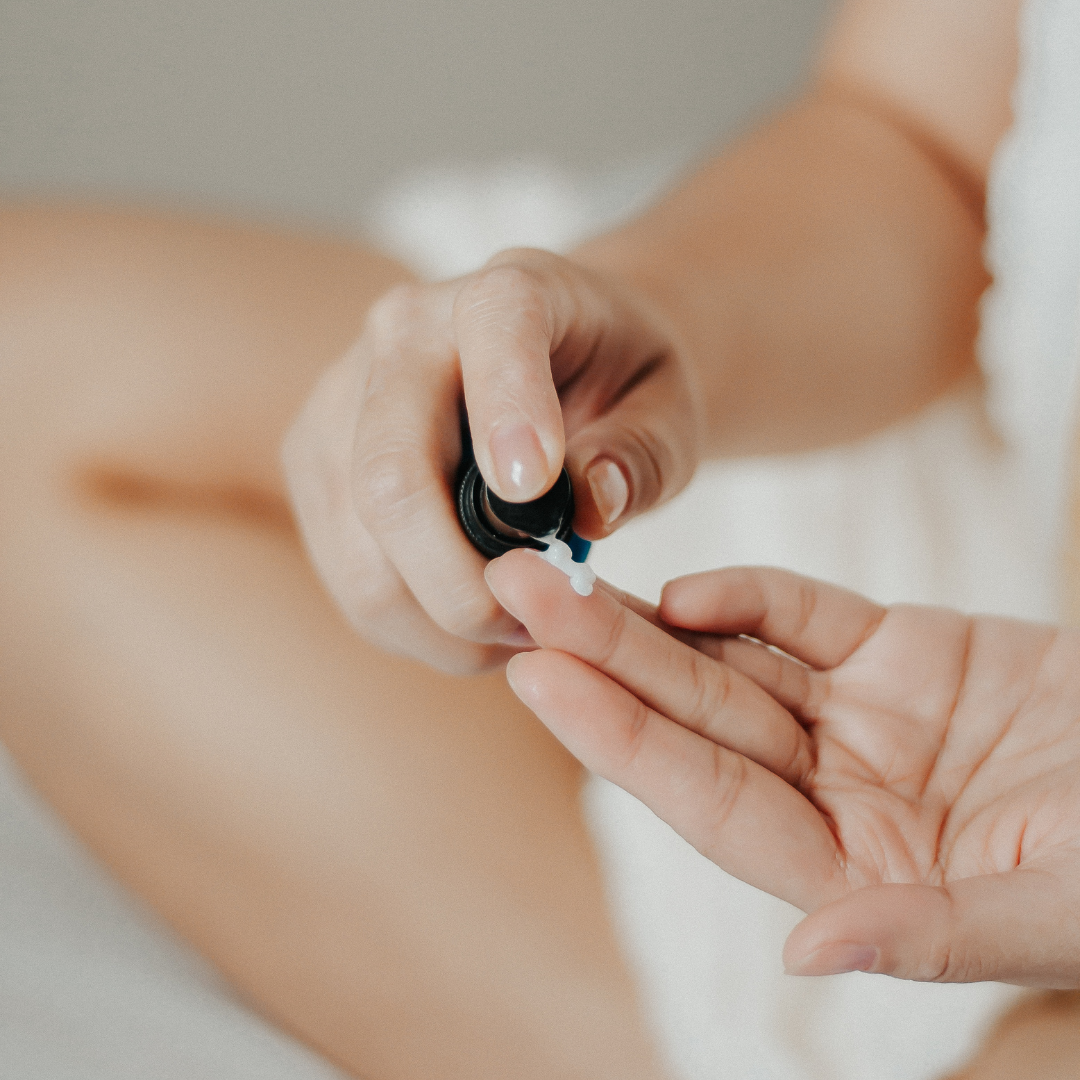Menopausal symptoms such as changes in mood and hot flushes receive a lot of attention, yet the depletion of oestrogen and changes in hormones during the menopause can also massively affect the skin.
We've invited Skin + Me's Dermatologist, Dr Ben Esdaile onto the blog to ask how the skin changes during the menopause, and how to build a routine that best suits your skin’s changing needs.
How does the menopause affect the skin?
The menopause can have a big impact on a woman’s skin. So much of the conversation around menopause is focused on reproduction and the end of periods, but the impact on female bodies is wide-ranging. Oestrogen plays an important role, with oestrogen receptors actually found in the skin. These are involved in key processes such as skin hydration, wound healing and promoting the building blocks of skin collagen and elastin.
When you go through the menopause, the loss of oestrogen can result in increased dryness, itching, impaired wound healing and an accelerated loss of collagen which results in skin thinning, fine lines and wrinkles. HRT, which is a common treatment during menopause can also trigger acne. On the plus side, the hormonal shifts and the impact on skin associated with the menstrual cycle should calm down.
What skincare products/ingredients are best to use for dry skin during the menopause?
Once you reach the menopause you should start to adapt your skincare to meet your skin’s changing needs. Richer moisturisers containing ingredients such as glycerin and shea butter can be beneficial to help restore the skin barrier, always being careful to avoid blocked pores. If you are suffering from dryness, facial oils can also be incorporated into your skincare routine but again be mindful if you are prone to breakouts that some can block pores. Hyaluronic acid is another good moisturising ingredient to look out for as it functions as a humectant, meaning it draws in water from the environment and the deeper layers of your skin.
There are several active ingredients that you should incorporate into your skincare routine which can help with skin changes during the menopause. The loss of collagen during the menopause contributes to increased appearance of fine lines, so boosting collagen production will be your number one priority. If you weren’t using them already, now is the time to introduce retinoids. Vitamin A, or retinoids, are the gold-standard topical treatment for fine lines and wrinkles. They accelerate skin cell turnover and increase collagen production and should be an essential part of your menopausal skin routine. Use them in the evening and pair with an SPF in the day. If you don’t apply SPF daily, your skincare can’t work effectively
Niacinamide is also a fantastic active ingredient to boost collagen production, and alpha hydroxy acids, such as glycolic acid, help brighten the skin as well as boosting collagen production.
It’s important to use actives cautiously in menopausal skin, as increased dryness and thinning means the skin can be more prone to side effects and irritation. As such, it’s advisable to go slowly and not overdo it with active ingredients, and increase the potency gradually. This is why Skin + Me prescriptions start on low strengths of powerful active ingredients, only gradually increasing them as tolerance builds. This means you get the benefit of active ingredients while minimising side effects.
"Niacinamide is also a fantastic active ingredient to boost collagen production, and alpha hydroxy acids, such as glycolic acid, help brighten the skin as well as boosting collagen production."
Can a certain skincare regime help produce collagen?
A regimen incorporating tretinoin can help promote collagen production in the skin. Tretinoin belongs to a family of drugs called the retinoids. Retinoids are derived from Vitamin A. Tretinoin is only available on prescription and is much more powerful and effective compared to other members of the retinoid family including retinols.
The anti-ageing effects of tretinoin were first noted in the 1980s with adult women treated with acne. In addition to treating acne, they often reported smoother, less wrinkled skin. Since then many studies have been conducted into tretinoin and anti-ageing and randomised trials have confirmed its efficacy in slowing the progression as well as reversing the signs of ageing. Tretinoin works in the epidermis stimulating cell renewal and enhancing the cell layer, reducing pigmentation and normalising sun-damaged cells. It also works in the dermis to increase collagen, elastin and glycosaminoglycans which thickens the dermal layer and makes the skin appear plump.
Tretinoin works in the epidermis stimulating cell renewal and enhancing the cell layer, reducing pigmentation and normalising sun-damaged cells.
It is also essential to remember to incorporate daily sun protection into your regime to prevent damage to collagen. Some of the light rays emitted from the sun are called ultraviolet rays. These are split into ultraviolet A, B and C rays. The most important rays in terms of the skin are UVA and UVB rays. The UVB rays cause the skin to burn and are extremely damaging to the superficial layers of the skin and are known to cause skin cancer. The SPF is a direct measure of protection against UVB rays, we recommend at least a factor 30. The UVA rays penetrate deeper into the skin and cause damage to the scaffolding proteins (collagen and elastin) that hold the skin firm. Damage to the scaffolding results in the wrinkles and skin creases seen in sun damage (photoageing). It is important to make sure your sun protection also protects against UVA rays.
Is there anything to incorporate into your skincare regime that helps protect the skin during excessive sweating from hot flushes?
Looking after your skin barrier can help protect the skin from sweating from hot flushes. Moisturisers containing barrier friendly ingredients such as glycerin, shea butter , niacinamide and ceramides or urea are great at repairing our barrier and protecting it. Extra moisture can be achieved with the hydrating ingredient hyaluronic acid which can be found in many great hydrating serums that can be layered underneath your moisturiser. Try to avoid harsh cleansers such as gel and foaming cleansers in the winter and reduce the frequency or even stop the application of strong exfoliators such as AHA and BHAs. Ultimately it is worth discussing with your doctor about the possibility of HRT as this may help with the underlying problem of flushing and sweating.Are there specific foods/nutrients we should eat to help skin during menopause to help aid a good skincare routine?
A balanced diet is a really important aspect of your general wellbeing and skin health. It is important to make sure your calcium and vitamin D levels are in the normal range particularly for your bone health as well as the skin.
To start your free skin consultation with Skin + Me, click here and to find out how the nutritional wonder of seaweed can accompany a good skincare regime, visit our website here to shop Menopause+.

